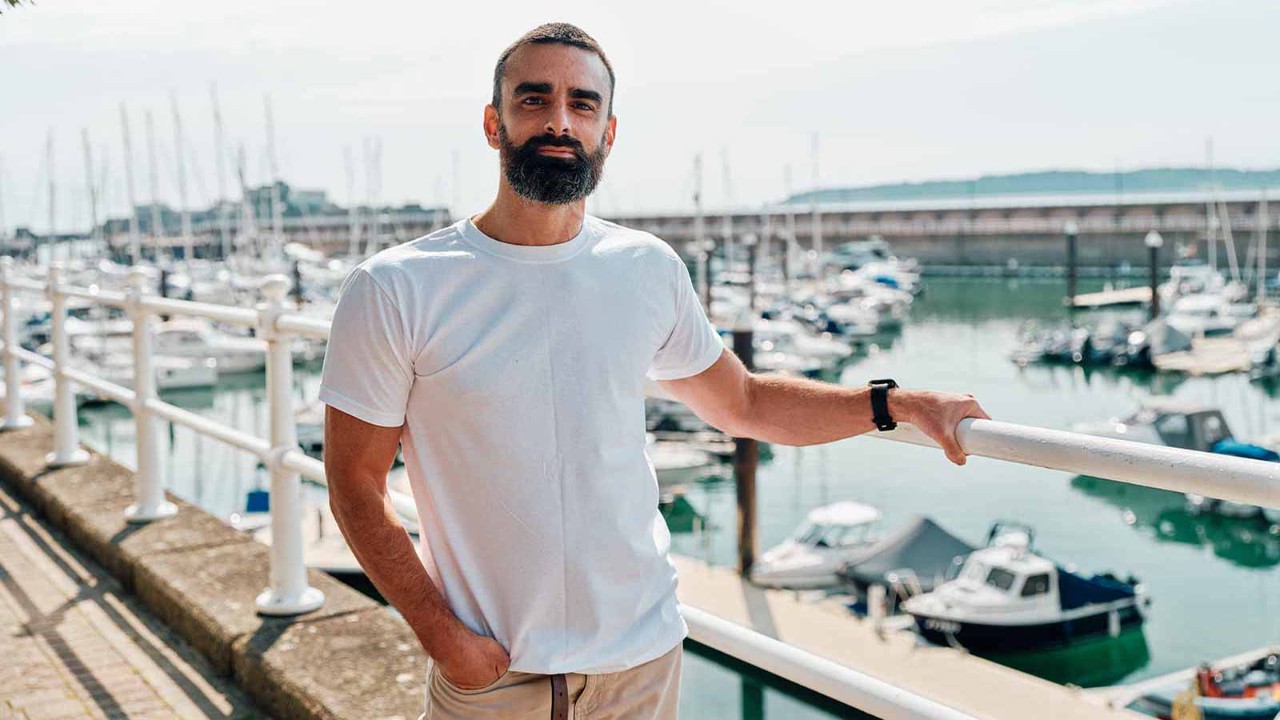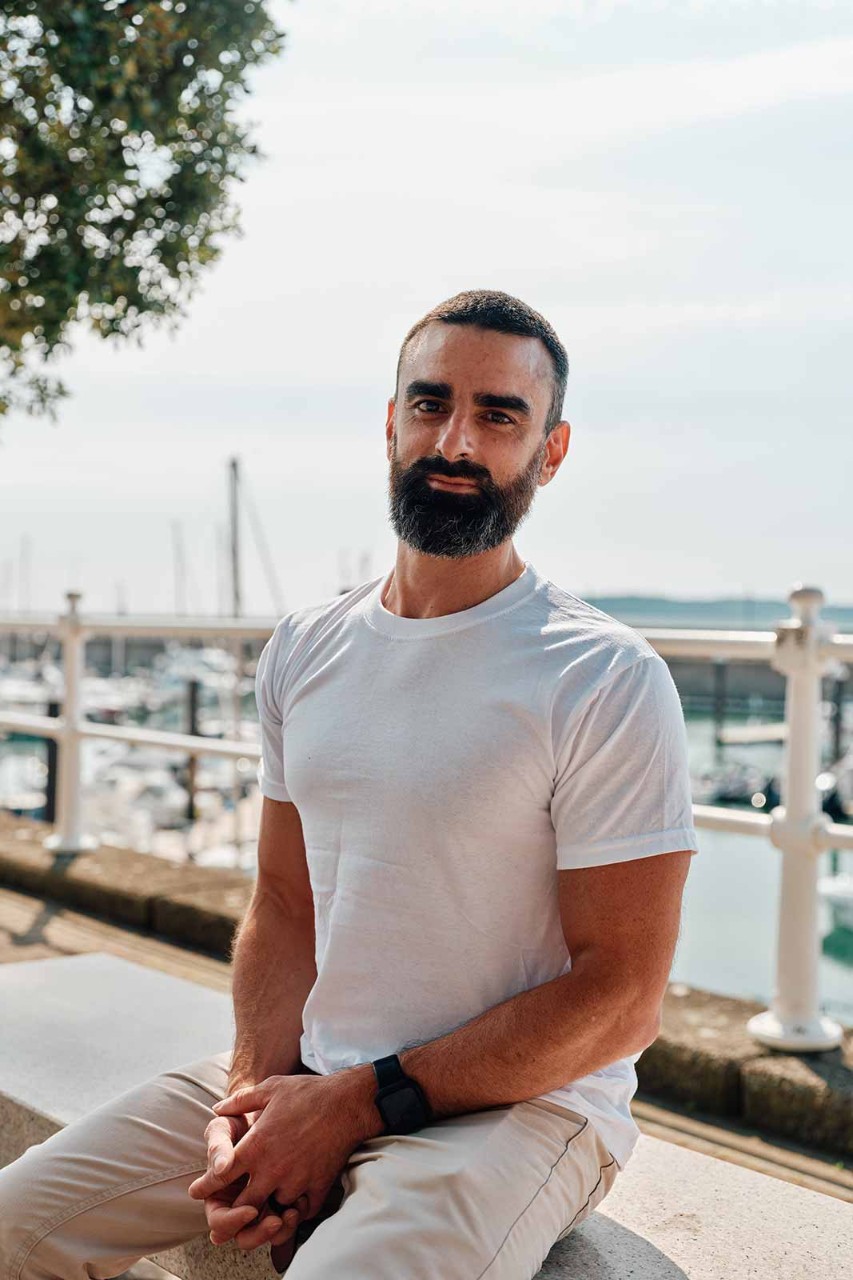
Andrew Philippou FCCA was just 21 when he received the news that would change his life forever. He had been diagnosed with a rare, degenerative neurological condition that would profoundly affect both his mobility and his speech (but not his cognitive functioning). The doctor who made the diagnosis told Philippou that he would be in a wheelchair within five years and dead within 10.
Fast forward more than two decades and Philippou has outlived the doctor who delivered this diagnosis. He is also receiving pioneering treatment that is slowing down the progression of his illness, while working as group financial controller for Australian dancewear company Bloch.
‘You have to alter all of your dreams and expectations. The only way I coped was by studying hard’
Entrepreneurial spirit
As a child, Philippou displayed a strong entrepreneurial drive – an early indicator that he was destined for a career in business. At the age of eight, he sold saplings from his parents’ palm trees to his neighbours in the South African city of Durban.
Subsequently, he realised that developing finance skills could support his entrepreneurial ambitions. ‘Finance skills,’ he explains, ‘are almost a driving licence for running a business.’
Philippou was in his second year as a student at the University of KwaZulu-Natal when he was diagnosed with his life-changing condition. By that stage, his parents had moved to the UK, and he had to deal with the news largely on his own.
‘It was really tough,’ he recalls. ‘You have to alter all of your dreams and expectations. The only way I coped was by studying hard.’
After he graduated, Philippou decided to follow his parents to the UK. He landed a job in Nottingham, working as an accountant for motor retailer Pendragon. There, he began studying for the ACCA qualification, attracted by the broad syllabus and the fact that it would give him the option to live and work in different countries.
CV
2019
Financial analyst, then group financial controller, Bloch, St Helier, Jersey
2012
Managing director, Wakaberry Frozen Yoghurt, Cape Town, South Africa
2009
Group financial manager, then group FD, Columbus McKinnon, Durban, South Africa
2007
Group accountant, R&R Marketing, Durban, South Africa
2006
Accountant, Pendragon, Nottingham, UK
Having grown up in the sunshine of South Africa, Philippou struggled with English winters so he returned to South Africa. He unleashed his entrepreneurial talents once again, starting a business venture in 2012: Wakaberry Frozen Yoghurt, a self-service shop in Cape Town. While he enjoyed being an entrepreneur, he was doing this as a sideline in addition to professional roles and found it difficult to juggle two jobs. His health was also declining.
‘After three years, I realised that living in Durban and being responsible for, at that stage, five subsidiaries plus my own day-job was too much,’ Philippou explains. Reluctantly, he closed down the business to focus on his corporate role.
Then, in 2018, came a life-changing development. Philippou got the opportunity to participate in the world’s first phase 3 drug trial for his condition, which was being run by University College Hospital in London. He returned to the UK to participate in the trial, while working remotely for Columbus McKinnon, the NASDAQ-listed maker of lifting and motion-control equipment.
‘I don’t get tired when I’m doing something I love. Maybe it helps me to deal with my disability’

Initially, Philippou was given the placebo treatment, which resulted in his health declining further. But, after 11 months, he was invited to start taking the real drug, which meant remaining in the UK, or close to it, on longer term basis.
Island life
Today, Philippou is based in Jersey, the largest of the Channel Islands, and travels to London every six months for medical assessments. Since 2019, he has worked for Bloch, which he joined as a financial analyst, before being rapidly promoted to his current role of group financial controller. Bloch has numerous subsidiaries in different time zones ranging from Australia to the US.
‘Month-end is hell,’ Philippou confesses. ‘Everyone submits their reports, which I have to consolidate and put out in two days.’
Philippou’s other responsibilities include preparing the data for the company’s financial statements, as well as budgeting and forecasting. To do this, he needs to communicate with the different subsidiaries, understand their businesses and monitor their audits. It’s a busy role that can require him to work long hours.
‘Often I might have a meeting with Australia at seven in the morning and a meeting with the US at seven in the evening,’ he explains. He gets through these exhausting days by ‘following a strict routine, which includes gym every day, intermittent fasting and drinking loads of coffee’.
Work is hugely important to Philippou, who has used a mobility scooter since 2018. He splits his working week between home and the office, which Bloch has tried to adapt for Philippou as best it can.
‘Don’t see disability as a risk. See it as a benefit in terms of the person’s character’
‘I’m passionate about what I do,’ he says. ‘I don’t get tired when I’m doing something I love that much. Maybe it helps me to deal with my disability.’
Above and beyond
Aside from the obvious strain that Philippou’s condition inflicts on his health, he has faced practical issues in terms of being able to navigate buildings and has also experienced potential employers ‘ghosting’ him when he has disclosed his condition as part of the job application process. When employers behave in this way, he says, they are not just behaving disrespectfully towards disabled people; they are also missing out on a hardworking and committed talent pool.
‘Don’t see disability as a risk,’ is Philippou’s recommendation to hiring-managers. ‘See it as a benefit in terms of the person’s character. We have had to overcome tremendous odds and we refuse to give up. We have been through adversity and come through it.’
The fact that Philippou has defied his original prognosis and works full time while managing his condition is testament to his extraordinary strength of character. He believes in challenging himself and sets goals every year for different aspects of his life. Unsurprisingly, his advice to other disabled people is: ‘Don’t give up and keep pushing as hard as you can.’





